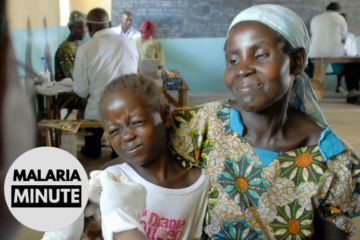The Latest Malaria News, in 60 Seconds.
New research examines the long-term impact of malaria infection on γδ T cells, and a review of malaria cases among pregnant women in Lagos, Nigeria, explores the impact of preventative measures on the prevalence of malaria and anaemia.
Malaria Minute on iTunes and Spotify
Transcript:
New research has examined the long-term impact of malaria infection on γδ T cells, which are involved in the immune response against the parasites. Researchers identified the development of a new ‘memory-like population’ of γδ T cells in mice who had been exposed to Plasmodium chabaudi malaria. These antigen-experienced cells could be reactivated quickly upon a second exposure to malaria, making the mice better equipped to deal with future infection.
A review of malaria cases among pregnant women in Lagos, Nigeria, has examined the impact of preventative measures on the prevalence of malaria and anaemia. The results demonstrate that interventions to reduce malaria and moderate-to-severe anaemia, especially in a first pregnancy, should include education on the correct use of long-lasting insecticide-treated bed nets, intermittent preventive treatment and on the dangers of herbal teas in pregnancy.
Sources:
Image Credits: CDC/ Dr. Mae Melvin [20373]
Scientific Advisor: Katharine Collins, Radboud University Medical Centre


